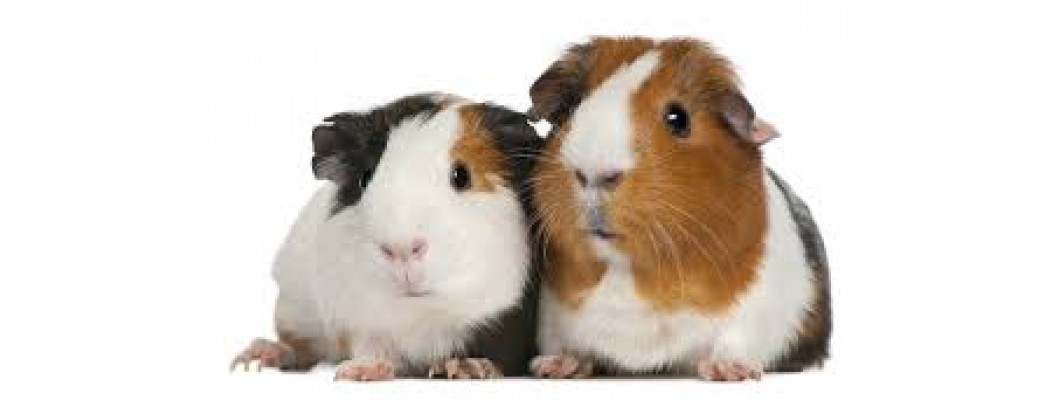
Ένα από τα πιο σημαντικά θέματα που πρέπει κάθε ιδιοκτήτης εξωτικού ζώου να λάβει σοβαρά υπόψιν, για να μπορέσει να επιτύχει την ευζωία του ζώου του, είναι το θέμα διατροφής.
Η διατροφή είναι βασικό κομμάτι για την υγεία τόσο του ανθρώπου όσο και των ζώων. Αν είναι ελλιπής σε θρεπτικά συστατικά, αναγκαία για τον οργανισμό, τότε η άμυνα του οργανισμού δεν είναι επαρκής σε τυχόν εισβολές από παθογόνους μικροοργανισμούς και βάλλεται πολύ πιο εύκολα, με αποτέλεσμα την κατάρρευση του.
Το κάθε εξωτικό ζώο έχει διαφορετικές και ξεχωριστές ανάγκες σε σύγκριση με άλλα. Πρωτίστως, πρέπει να γνωρίζουμε την κατηγορία στην οποία ανήκει π.χ. χορτοφάγο, παμφάγο, σαρκοφάγο. Επίσης, είναι σημαντικό να ακολουθούμε και να σεβόμαστε τις διατροφικές ανάγκες του ζώου μας και όχι να προσπαθούμε να τις αλλάξουμε και να τις ενσωματώσουμε στις δικές μας συνήθειες (π.χ. αν ένας ιδιοκτήτης είναι χορτοφάγος και έχει διαλέξει ως κατοικίδιο τη νυφίτσα – ferret- τότε το κατοικίδιο δεν μπορεί να τρέφεται με χορταρικά, γιατί πολύ απλά το ζώο αυτό είναι ξεκάθαρα σαρκοφάγο). Μια τέτοια αλλαγή στη διατροφή του ζώου μπορεί να είναι επικίνδυνη για το οργανισμό του, με τραγικές επιπτώσεις σε αυτόν!
Γνωρίζοντας λοιπόν τις διατροφικές συνήθειες του ζώου μας, θα πρέπει ως επόμενο βήμα να διαλέξουμε ένα ορθολογικό ημερήσιο διατροφολόγιο που θα καλύπτει τις ανάγκες του οργανισμού του σε βιταμίνες, ενέργεια, ιχνοστοιχεία και άλλα αναγκαία συστατικά, ώστε να υπάρχει πάντα ομοιοστασία στον οργανισμό του.
Η αγορά μιας συσκευασμένης τροφής θα πρέπει να γίνετε πάντα με βάση τις ανάγκες του οργανισμού στην παρούσα φάση του κατοικίδιου μας. Οι ανάγκες είναι άλλες για έναν νεοσσό/νεαρό ζώο που είναι σε ανάπτυξη, άλλες για ένα ενήλικο σε αναπαραγωγική φάση και άλλες για ένα ενήλικο σε μη αναπαραγωγική φάση ή υπερήλικο ζώο. Επίσης σε κάποια ζώα όπως τα πτηνά, υπάρχει και η φάση της πτερόρροιας όπου και εκεί
χρειάζεται ιδιαίτερη φροντίδα όσον αφορά την διατροφή, μιας και η σύνθεση καινούργιων φτερών χρειάζεται αρκετές πρωτεΐνες!
Η αγορά τροφής θα πρέπει να γίνετε πάντα με περίσκεψη. Η ξηρά τροφή θα πρέπει να είναι συσκευασμένη, καλά κλεισμένη ή αν είναι χύμα, να είναι φρεσκο-ανοιγμένη και σωστά διατηρημένη σε κλειστά δοχεία. Έτσι εξασφαλίζετε η διατροφική της αξία και είμαστε σίγουροι για την σωστή διατροφή του κατοικίδιου μας.
Η ξηρά τροφή θα πρέπει να ακολουθείτε από φρέσκα φρούτα και λαχανικά στα ζώα τα οποία συνίσταται ή από φρεσκοκομμένα κομμάτια βραστού ή καθαρού κρέατος, αγορασμένα από γνωστό κρεοπώλη για τα κρεατοφάγα/παμφάγα κατοικίδια μας.
Τα μίγματα σπόρων ή καρπών θα πρέπει πάντα να προσφέρονται μαζί με τροφές (π.χ. φρέσκα λαχανικά/φρούτα, αυγο-τροφή, χόρτο) που περιέχουν τα στοιχεία όπου τους λείπουν, ώστε να υπάρχει ισορροπία. Λόγω του ότι πολλά από αυτά τα εξωτικά ζώα ξεδιαλέγουν τους σπόρους/καρπούς από το μίγμα που τους προσφέρεται, χάνουν πολλά από τα θρεπτικά συστατικά που χρειάζεται ο οργανισμός τους και προσλαμβάνουν άλλα σε υπερεπάρκεια με αποτέλεσμα την ανομοιοστασία του οργανισμού. Ένα παράδειγμα αυτού είναι η παχυσαρκία. Από την άλλη αυτό μπορεί να λυθεί με την αντικατάσταση του μίγματος αυτού με την προσφορά κροκέτας/σύμπηκτα ή αλλιώς τροφής σε μορφή pellet, που είναι συμπιεσμένη τροφή είτε σπόρων/δημητριακών με αποξηραμένα φρούτα/λαχανικά/χόρτο είτε αποξηραμένο μίγμα κρέατος, ανάλογα για το κάθε είδος.
Κάτι εξίσου σημαντικό είναι ο διαχωρισμός των τροφών που είναι τοξικά για τα ιδιαίτερα αυτά ζώα. Τροφές όπως το αβοκάντο, η σοκολάτα, οι τηγανιτές πατάτες, οι αλατισμένες τροφές κ.α. μπορεί να προκαλέσουν παθολογικές αλλοιώσεις σε διάφορα όργανα στον οργανισμό τους, όπως νεφρική ανεπάρκεια ή ακόμα να επιφέρουν και τον θάνατο.
Για κάθε εξωτικό είδος ζώου υπάρχουν πολλές ιστοσελίδες που ενημερώνουν τον ενδιαφερόμενο κηδεμόνα για το τι χρειάζεται και δεν χρειάζεται διατροφικά το συγκεκριμένο ζώο. Συχνά όμως το διαδίκτυο μπορεί να παρέχει ελλιπής πληροφορίες στα θέματα όπως η τοξικότητα ορισμένων τροφών. Για αυτό το λόγο καλό θα ήταν να συμβουλευόμασταν και να τις διασταυρώναμε με τον εξειδικευμένο κτηνίατρο της επιλογής μας.
Το νερό είναι επίσης πολύ βασικό στοιχείο διατροφής σε όλους τους οργανισμούς! Φρέσκο, καθαρό νερό θα πρέπει πάντα να παρέχετε κάθε μέρα, σε όλα τα ζώα, είτε προέρχονται από άνυδρες περιοχές του πλανήτη είτε προέρχονται από την θάλασσα ή τις λίμνες.
Το νερό είναι βασικό στοιχείο του οργανισμού και χρειάζεται σε όλες τις λειτουργίες του οργανισμού!
Η σωστή διατροφή, μαζί με το ανάλογο περιβάλλον διαβίωσης, ειδικά διαμορφωμένο για το κάθε εξωτικό ζώο είναι το Α και το Ω για την ευζωία και μακροζωία αυτού του ζώου που βρίσκεται στην κατοχή μας.
Παρέχοντας τα παραπάνω και σε συνδυασμό με την αγάπη που θα προσφέρουμε, θα έχουμε καταφέρει να έχουμε ένα υγιές κατοικίδιο που θα μπορεί και εκείνο με την σειρά του να μας ανταποδώσει την ζεστασιά και ομορφιά που ζητάμε, είτε αυτό είναι ένα λυρικό κελάηδισμα, μια «παιδική» ομιλία ή ένα χαρούμενο, παιγνιδιάρικο πλάσμα!
Χριστίνα Δουκάκη,
Kτηνίατρος
